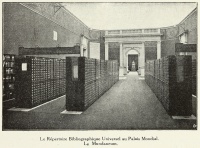Knowledge
From The Art and Popular Culture Encyclopedia
|
"There is much pleasure to be gained from useless knowledge" -- Bertrand Russell "At least I will learn this melody before I die" --Emil Cioran "Because as wisdom grows, anger grows, and one who adds knowledge, adds pain" --Ecclesiastes I know that I know nothing --Socrates |

Illustration: The Bookworm (c. 1850) by Carl Spitzweg

|
Related e |
|
Featured: |
Knowledge is defined (Oxford English Dictionary) variously as (i) expertise, and skills acquired by a person through experience or education; the theoretical or practical understanding of a subject, (ii) what is known in a particular field or in total; facts and information or (iii) awareness or familiarity gained by experience of a fact or situation. Philosophical debates in general start with Plato's formulation of knowledge as "justified true belief". There is however no single agreed definition of knowledge presently, nor any prospect of one, and there remain numerous competing theories.
Knowledge acquisition involves complex cognitive processes: perception, learning, communication, association and reasoning. The term knowledge is also used to mean the confident understanding of a subject with the ability to use it for a specific purpose if appropriate.
Theories of knowledge
- The eventual demarcation of philosophy from science was made possible by the notion that philosophy's core was "theory of knowledge," a theory distinct from the sciences because it was their foundation… Without this idea of a "theory of knowledge," it is hard to imagine what "philosophy" could have been in the age of modern science. --Richard Rorty, Philosophy and the Mirror of Nature
The definition of knowledge is a matter of ongoing debate among philosophers in the field of epistemology. The classical definition, described but not ultimately endorsed by Plato, specifies that a statement must meet three criteria in order to be considered knowledge: it must be justified, true, and believed. Some claim that these conditions are not sufficient, as Gettier case examples allegedly demonstrate.
In contrast to this approach, Wittgenstein observed, following Moore's paradox, that one can say "He believes it, but it isn't so," but not "He knows it, but it isn't so." (On Certainty, remark 42) He goes on to argue that these do not correspond to distinct mental states, but rather to distinct ways of talking about conviction. What is different here is not the mental state of the speaker, but the activity in which they are engaged. For example, on this account, to know that the kettle is boiling is not to be in a particular state of mind, but to perform a particular task with the statement that the kettle is boiling. Wittgenstein sought to bypass the difficulty of definition by looking to the way "knowledge" is used in natural languages. He saw knowledge as a case of a family resemblance. Following this idea, "knowledge" has been reconstructed as a cluster concept that points out relevant features but that is not adequately captured by any definition.
See also
- At least I will learn this melody before I die, Socrates
- Outline of knowledge - guide to the subject of knowledge presented as a tree structured list of its subtopics.
- Explicit knowledge
- Figurative system of human knowledge
- Intelligence
- Intuition (as an unconscious form of knowledge)
- Knowability
- Knowledge for knowledge's sake
- Learning
- Sociology of knowledge
- Tacit knowledge
- Truth
- Wisdom
- Knowability
- Useless knowledge
Contrast



